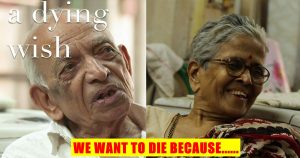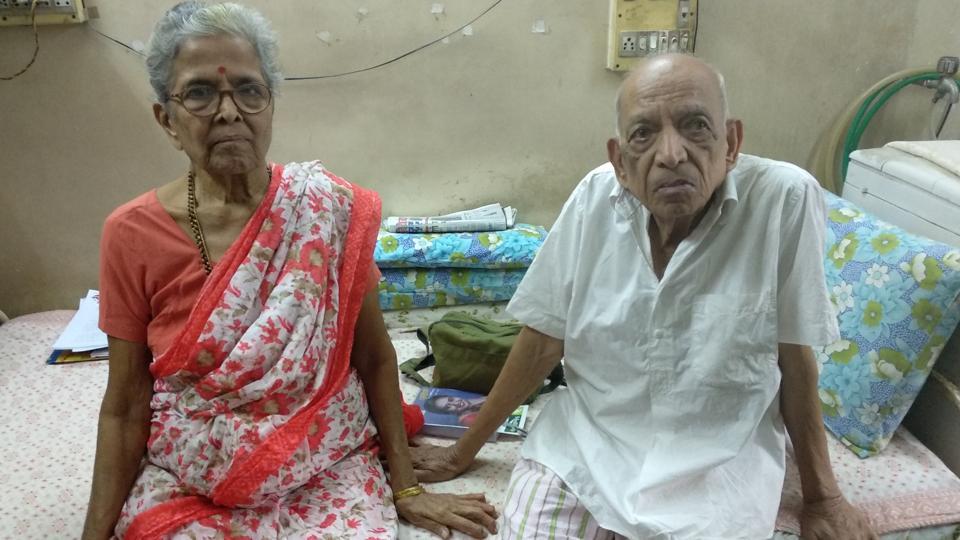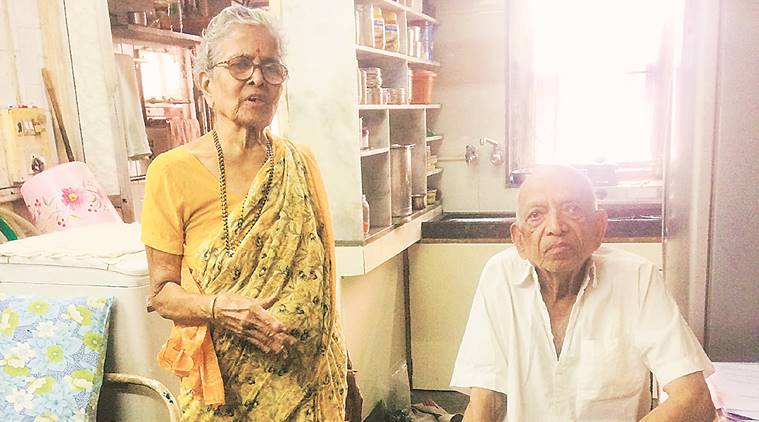
This Elderly Couple Writes A Letter To President To Permit Them For Euthanasia (Assisted Suicide)
It is not so hard to find Narayan and Iravati Lavate’s residence in the narrow bylanes of Thakurdwar. Anyone will guide you to their house. In the last few weeks, the men admit having guided many media persons to their first floor flat at Laxmibai Chawl.
The couple came to the limelight after writing a letter to the President’s office, seeking permission for ‘Active Euthanasia’, where a person is killed, usually by administering an overdose of pain-killers.

“Euthanasia means to give a peaceful exit to a person suffering from a terminal illness. Active euthanasia entails the use of lethal substances to kill a person, such as a lethal injection to a person with terminal cancer. Passive euthanasia entails withholding of medical treatment resulting in death, like removing the ventilator from a patient in a coma.”
Narayan Lavate (88) and his wife Iravati (78), who have no children and say their siblings are also no more, are of the view that keeping them alive against their wishes is a “waste of the country’s scarce resources as well as theirs”.
While neither Narayan nor Iravati have any ailment, the couple says the wish for assisted suicide was driven by the satisfaction of having lived a happy life and the idea to not depend on hospitals for old-age ailments. In addition, they said, the fear of one of them passing away while the other lives on led them to approach the President of India.

“Everybody is asking why we want to die so early if we are fit,” says Iravati Lavate, a 78-year-old retired school principal. She is in the midst of her routine stretching exercise. Settling down slowly on her bed, her back against a cushion for support, she adds, “We are just tired of living. We can’t wait for an ailment to make us bed-bound.”
Narayan Lavate, who retired from the Maharashtra State Road Transport Corporation (MSRTC) in 1989 and his reason for writing to the President is because if the constitutional power to pardon life sentences lies with him, so should also the power to allow “right to death”. Explaining his unusual plea, Narayan said if he and his wife decided to commit suicide by jumping from a terrace or hanging themselves, there was no guarantee they would die.
Watch The Video Here:
“In Switzerland, there is an organization called Dignitas for those who wish to end their lives. Qualified doctors who assist them in the process are not charged for abetment to suicide. We became members of the organization but cannot go there since I don’t have a passport,” Lavate said.
“Our aim of writing to the president is to make us an exceptional case for active euthanasia,” he said. In his petition dated December 21, 2017, Lavate said he and his wife are in a reasonably good health and not suffering from any serious ailment. He said it is unfair to compel them to wait till they contract some serious ailment or deformity.
A national discourse on euthanasia started in India in 2011, when the Supreme Court, while hearing the case of a nurse from KEM Hospital, Aruna Shanbaug, who was in a vegetative state for nearly 30 years, legalized passive euthanasia. Shanbaug died in 2015, while on a ventilator for several days after suffering from pneumonia.
There have been applications, including one in 1997 from CA Thomas Master, a Kerala teacher, before Indian courts seeking permission for active euthanasia. The Kerala high court rejected the teacher’s plea. He subsequently killed himself in April 2004.
Also Read: This Photo Of Old Man Sitting At A Traffic Signal Has Gone Viral, Here’s Why?
